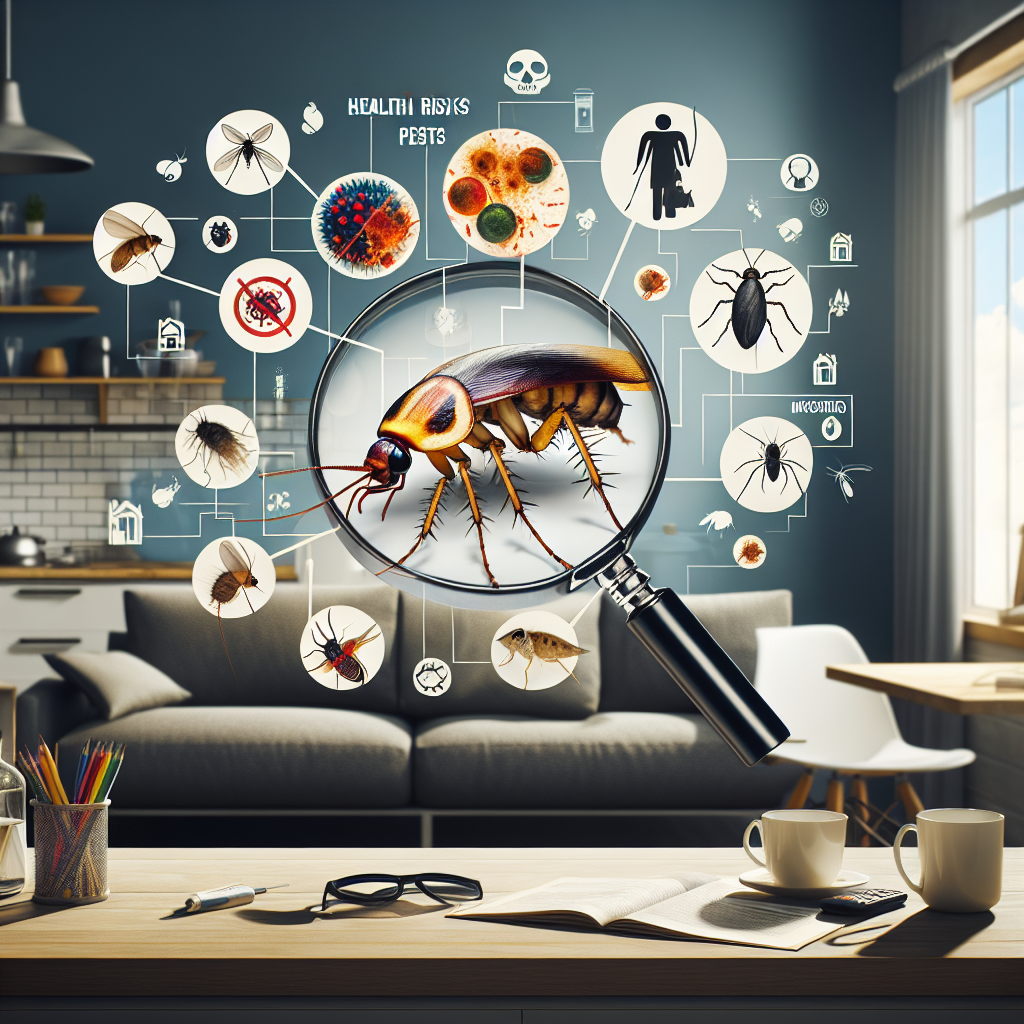When we think of pests, myriad images come to mind—cockroaches scuttling across the kitchen floor, ants marching in unison, or the unsettling sight of a mouse darting across the living room. While these creatures may seem like mere nuisances, the health risks they pose to our families are often overlooked. In this article, we delve into the various types of common household pests and the health risks they introduce into our homes.
Understanding Common Household Pests
Rodents: More Than Just Unwanted Guests
Rodents, including mice and rats, are notorious for invading homes in search of food and warmth. They thrive in our attics, basements, and kitchens. But the presence of these furry intruders brings with it a host of health risks.
Diseases Spread by Rodents
Rodents are carriers of various diseases, such as:
- Hantavirus: Often spread through contact with rodent droppings or urine, this virus can lead to severe respiratory issues.
- Leptospirosis: This bacterial infection can be contracted through contact with contaminated water and can cause flu-like symptoms and severe damage to organs.
- Salmonella and Listeria: Through contaminated food, these bacteria can cause food poisoning, leading to symptoms like vomiting, diarrhea, and severe abdominal pain.
Cockroaches: The Unseen Dangers
Cockroaches don’t just make your skin crawl; they can significantly impact your health too. They thrive in dirty environments, feeding on decaying matter. Their droppings, saliva, and body fragments can trigger asthma and allergies, especially in children.
The Allergens They Carry
Cockroach allergens are known to worsen asthma symptoms and can even trigger new cases of the condition. If someone in your household is struggling with respiratory issues, these pests may be a hidden contributor.
Ants: Tiny but Mighty
While ants may be small, their presence can lead to considerable health risks. Many species forage for food in contaminated areas, making them potential carriers of pathogens.
Salmonella and E. Coli
Certain ant species, like the odorous house ant, can pick up bacteria from decaying food or animal waste and transfer them onto countertops and other surfaces. This enhances the risk of foodborne illnesses caused by bacteria such as Salmonella and E. Coli.
Bed Bugs: More Than Just Bites
Bed bugs are infamous for their bites, which can cause discomfort and anxiety. However, the health risks associated with these pests extend beyond mere itching.
Psychological Impact of Infestations
While bed bug bites can lead to secondary infections if scratched, the psychological stress of living with a bed bug infestation can cause insomnia, anxiety, and even depression. The fear of being bitten in one’s own home can lead to sleepless nights and a decrease in the quality of life.
Prevention: Keeping Your Home Pest-Free
Understanding the health risks associated with these pests is the first step in protecting your family. But the next step? Prevention.
Seal Entry Points
One of the most effective ways to keep pests out is by sealing entry points. Inspect your home for gaps in windows, doors, and foundations, and seal them to eliminate potential entryways.
Maintain Cleanliness
Keeping a clean home is crucial in deterring pests. Regularly clean your kitchen, promptly dispose of food waste, and maintain overall tidiness. Remember, a clutter-free environment is less appealing to pests.
Natural Remedies and Pest Control
Consider using natural repellents to keep pests at bay. Essential oils like peppermint and tea tree oil can deter common household pests effectively. If infestations occur, consult a professional pest control service that practices integrated pest management (IPM), combining natural and chemical solutions.
Conclusion: Protecting Your Loved Ones
The presence of pests in our homes may seem harmless at first glance, but the health risks they bring can be significant. By understanding these risks and implementing preventive measures, families can keep their homes safe and secure. Remember, a proactive approach is key to ensuring that the only things that inhabit your home are love and happiness, not pests.
By taking the time to address pest problems before they escalate, you’re not just protecting your home—you’re safeguarding your family’s health. Now that you’re informed, take action to keep those sneaky little invaders at bay!


